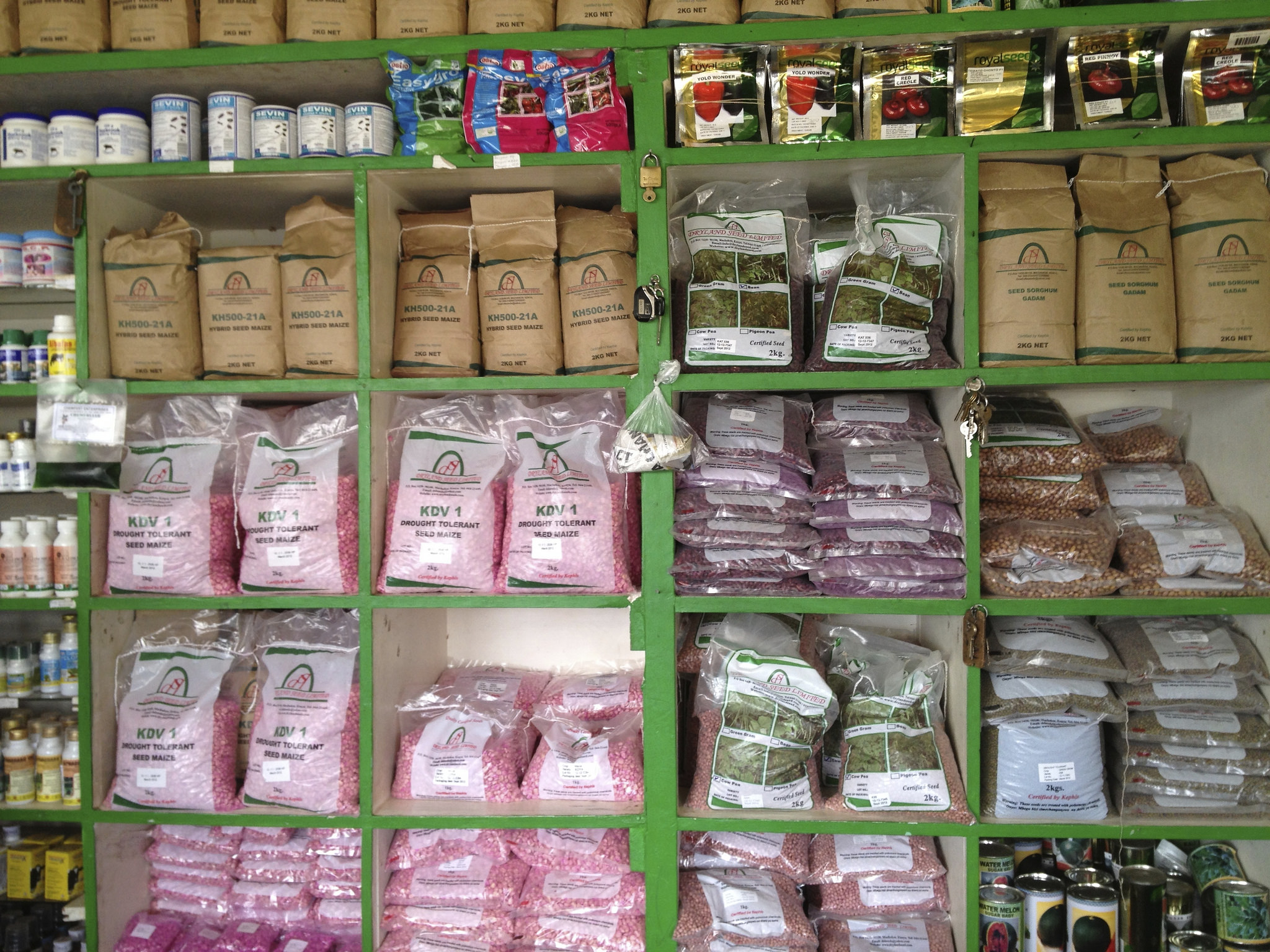The agricultural market has been suffering since the government of Nepal imposed a lockdown from March 23, 2020 to limit the spread of COVID-19 in the country. A month after the lockdown, the International Maize and Wheat Improvement Center (CIMMYT) conducted a rapid assessment survey to gauge the extent of disruptions of the lockdown on households from farming communities and agribusinesses.
As part of the Nepal Seed and Fertilizer (NSAF) project, CIMMYT researchers surveyed over 200 key stakeholders by phone from 26 project districts. These included 103 agrovet owners and 105 cooperative managers who regularly interact with farming communities and provide agricultural inputs to farmers. The respondents served more than 300,000 households.
The researchers targeted maize growing communities for the survey since the survey period coincided with the primary maize season.

Key insights from the survey
The survey showed that access to maize seed was a major problem that farmers experienced since the majority of agrovets were not open for business and those that were partially open — around 23% — did not have much customer flow due to mobility restrictions during the lockdown.
The stock of hybrid seed was found to be less than open pollinated varieties (OPVs) in most of the domains. Due to restrictions on movement during the entire maize-planting season, many farmers must have planted OPVs or saved seeds.
Access to fertilizers such as urea, DAP and MOP was another major problem for farmers since more than half of the cooperatives and agrovets reported absence of fertilizer stock in their area. The stock of recommended pesticides to control pests such as fall armyworm was reported to be limited or out of stock at the cooperatives and agrovets.
Labor availability and use of agricultural machineries was not seen as a huge problem during the lockdown in the surveyed districts.
It was evident that food has been a priority for all household expenses. More than half of the total households mentioned that they would face food shortages if the lockdown continues beyond a month.
During the survey, around 36% of households specified cash shortages to purchase agricultural inputs, given that a month had already passed since the lockdown began in the country. The majority of the respondents reported that the farm households were managing their cash requirements by borrowing from friends and relatives, local cooperatives or selling household assets such as livestock and agricultural produces.
Most of the households said that they received food rations from local units called Palikas, while a small number of Palikas also provided subsidized seeds and facilitated transport of agricultural produce to market during the lockdown. Meanwhile, the type of support preferred by farming communities to help cope with the COVID-19 disruptions — ranging from food rations, free or subsidized seed, transportation of fertilizers and agricultural produce, and provision of credit — varied across the different domains.
The survey also assessed the effect of lockdown on agribusinesses like agrovets who are major suppliers of seed, and in a few circumstances sell fertilizer to farmers in Nepal. As the lockdown enforced restrictions on movement, farmers could not purchase inputs from agrovets even when the agrovets had some stock available in their area. About 86% of agrovets spoke of the difficulty to obtain supplies from their suppliers due to the blockage of transportation and product unavailability, thereby causing a 50-90% dip in their agribusinesses.

Immediate actions to consider
Major takeaways from this survey are as follows:
- Currently, food access is a priority and households are spending more money on food. However, as and when the lockdown eases, the need for cash to buy agricultural inputs and services is likely to emerge and may require attention.
- Accessing maize seed and fertilizer was a problem in many communities during the maize season. Similarly, a shortage of rice seed, particularly hybrids, can be an issue for farmers unless efforts are made right away.
- To help cope with the COVID-19 disruptions, a one-size-fits-all relief package would not be effective for farming communities living in different domains. Major support should be on facilitating transport and distribution of seed and fertilizers, access to food supplies through the local government’s schemes, and provision of soft loans.
- Agrovets have an important contribution as the last mile service providers and they were hit hard by the lockdown. Therefore, facilitating agrovet businesses to operate and transport seeds, fertilizers, and pesticides from suppliers to agrovet business points will be essential to restore businesses and deliver agri-inputs to farmers.
The survey findings were presented and shared with the government, private sector, development partner organizations and project staff over a virtual meeting. This report will serve as a resource for the project and various stakeholders to design their COVID-19 response and recovery strategy development and planning.

 Gender equality, youth and social inclusion
Gender equality, youth and social inclusion 


